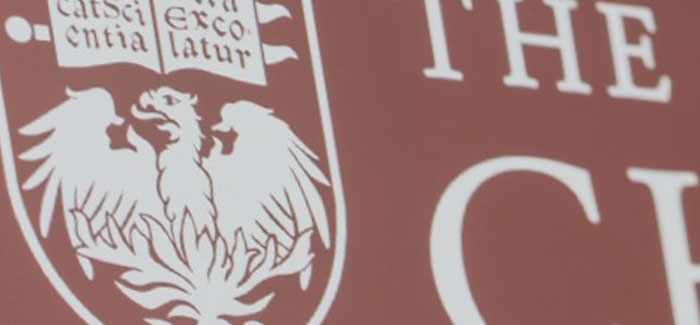
Fulbright friendly
Support at home prepares Latin Americanists to win prestigious awards for research abroad.
By their numbers alone, Chicago's Fulbright fellows are an impressive bunch. Nationwide, the University boasts the highest percentage of students receiving Fulbright-Hays Doctoral Dissertation Research Abroad Fellowships, and it consistently ranks first in the overall number of students who win graduate or undergraduate Fulbright-IIE U.S. Student Program Fellowships.
Graduate students who land the awards for research in Latin America constitute an especially strong cadre. In the past 11 years, 63 Chicago doctoral students have received Fulbright fellowships to pursue dissertation topics in the region, more than those from any other U.S. university. Currently, about ten percent of social-sciences graduate students focus on Latin America—and they constitute 28 percent of the University's Fulbright winners for the current academic year.
Nine students in the departments of history, anthropology, and sociology received Fulbright awards; their respective projects will take them to Brazil, Mexico, Peru, Panama, and the Dominican Republic (see sidebar). For most, the six-to-12 month fellowship is not a first foray into the field but the logical next step in a long-term research project.
A new view of Mexico
Jaclyn Sumner in Mexico City.
History doctoral student Jaclyn Sumner, AM'09, will spend her Fulbright-Hays fellowship year in Mexico researching ethnic and regional politics during the presidency (1876–1910) of Porfirio Díaz. "Scholars have traditionally conceived of Díaz as a dictator who used coercion and repression to govern," she says. Sumner intends to challenge that view by showing how political negotiation built a broad coalition that sustained Porfirian rule for three decades. She is focusing on the state of Tlaxcala and its indigenous governor, Próspero Cahuantzi, a Díaz ally who held power from 1885 to 1911.
In Mexico City, Sumner is consulting national archives and university libraries; she also expects to mine state, local, and private archives in Tlaxcala. "I hope that I can find enough interesting material to write a really good dissertation," she says. "To do good work, you really need to get lost in the archives here." A fourth-year PhD student, Sumner says having 12 months in Mexico will be useful for "making connections and establishing myself, because your dissertation ends but the project continues." The fellowship period is "not just about procuring documents—it's also about forming relationships while we're here."
In Chicago as well as in the field, relationships prove crucial to the success of graduate students from the moment they first apply for Fulbright awards. "I wrote dozens of drafts of my application and my advisers all read it and gave me feedback—and so did my peers," says Sumner. "It's really important to have that kind of supportive community. That has made all the difference."
Finding "backstories" in Brazil
Matthew Barton in Rio de Janeiro.
Matthew Barton, AM'07, a fifth-year PhD student in history, garnered back-to-back Fulbright awards for research in Brazil. Both grants have helped him advance his dissertation project, which analyzes why the federal government failed to extend national institutions to the province of Minas Gerais from 1840 to 1871. "The Brazilian state is viewed as massively successful, even as the most successful state in nineteenth-century Latin America," explains Barton. "That's by and large correct, except for Minas Gerais. It's the one province where they had this continual failure in trying to accomplish the primary goals of state consolidation," such as collecting taxes, recruiting soldiers for wars, and establishing transportation networks.
After spending nine months reading government documents in Rio de Janeiro—Brazil's former capital—Barton will shift his focus to smaller, previously untapped archives in Minas Gerais. "To find some of the backstories of what was going on in Minas, I'm going to be reading the private correspondence between politicians that wasn't necessarily going through official bureaucratic channels." Ultimately, he hopes to incorporate theoretical insights from several disciplines into his historical analysis of nineteenth-century Brazilian state building.
